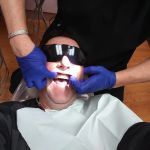1- Understanding Oral Dyslexia and Its Impact on Children
Oral dyslexia is a term that may not be as widely recognized as other learning disabilities, but it plays a significant role in how children develop language and communication skills. Children with oral dyslexia often experience difficulties in pronouncing words correctly, understanding the rules of speech, or even processing spoken language. While oral dyslexia does not directly equate to speech problems, there is a significant overlap, and many children with oral dyslexia do experience speech-related challenges. In this article, we’ll explore how oral dyslexia affects children and what steps can be taken to support their development.
2- How Does Oral Dyslexia Differ from Other Learning Disabilities?
Oral dyslexia is sometimes referred to as a type of language processing disorder, affecting a child’s ability to decode and interpret sounds, letters, and words. While dyslexia is often associated with reading and writing difficulties, oral dyslexia specifically targets a child's ability to speak and understand spoken language. This is different from other types of dyslexia, where reading, spelling, and writing are the primary difficulties. Oral dyslexia affects speech patterns, fluency, and pronunciation, and it can be especially challenging for children in their formative years when verbal communication is critical for their social and academic success.
2.1 Key Symptoms of Oral Dyslexia in Children
Children with oral dyslexia often exhibit certain signs that differentiate them from their peers when it comes to verbal communication. These signs may include:
- Difficulty pronouncing words correctly
- Struggling to follow instructions or commands
- Problems with memory recall, especially with words or phrases
- Speech patterns that may be unclear or disjointed
- Frequent mispronunciations or transposition of letters and sounds
It's essential to recognize these symptoms early on so that effective strategies can be put into place. While oral dyslexia doesn’t necessarily mean a child will have speech issues in the traditional sense, it does lead to difficulties in verbal communication, which can mimic speech problems.
3- Do Children with Oral Dyslexia Have Speech Problems?
Yes, children with oral dyslexia may have speech problems, but it’s important to note that oral dyslexia manifests differently in each child. Some children may struggle with speech fluency, while others may have difficulty understanding the flow of spoken language. This can affect how they communicate with their peers, their teachers, and even their parents. While oral dyslexia doesn’t directly cause speech delays, it can lead to misunderstandings, poor articulation, and difficulty in expressing thoughts clearly.
3.1 The Link Between Oral Dyslexia and Speech Delays
Many parents and educators report that children with oral dyslexia sometimes show signs of speech delays. This is often due to the way their brain processes auditory information. For example, a child with oral dyslexia may hear a word but have difficulty processing or recalling it, which could affect their ability to speak clearly or accurately. Furthermore, children may be unable to match sounds with letters or words as quickly as their peers, which could slow their verbal development.
3.2 Challenges in Social and Academic Settings
Speech problems caused by oral dyslexia can also impact a child’s social and academic life. In a classroom setting, children with oral dyslexia may struggle to follow verbal instructions, participate in group discussions, or read aloud. In social interactions, they may become frustrated when they can't express themselves clearly, leading to social isolation or anxiety. Addressing these challenges early with proper support and therapy can help mitigate the impact of oral dyslexia on their social and academic life.
4- How Can Parents and Educators Help Children with Oral Dyslexia?
Although oral dyslexia can be challenging, there are many strategies that can help children improve their verbal communication and reduce speech difficulties. The key is early intervention, consistent support, and using the right resources. Here are some ways to help children with oral dyslexia:
4.1 Speech Therapy
One of the most effective ways to address speech problems related to oral dyslexia is through speech therapy. Speech therapists work with children to improve their pronunciation, fluency, and overall communication skills. They may also help children practice techniques for better listening and understanding spoken language. This therapy can significantly enhance a child's ability to communicate clearly and confidently.
4.2 Reading Aloud and Phonemic Awareness
Phonemic awareness exercises can also help children with oral dyslexia. By focusing on the sounds of language, children can better connect sounds with letters and words. Reading aloud is another helpful exercise that can improve both speech and reading skills. Parents and teachers can work with children by reading together, encouraging them to sound out words, and focusing on word pronunciation.
4.3 Positive Reinforcement and Encouragement
Children with oral dyslexia may feel discouraged or frustrated by their difficulties with speech. It’s important for parents and educators to provide positive reinforcement and create a supportive environment that encourages them to keep practicing. Praise for effort, even if the words are not perfect, can boost their confidence and motivation.
5- Real-Life Stories: Overcoming Oral Dyslexia
Many children with oral dyslexia have been able to overcome their challenges with the right support. For example, one mother shared how her 7-year-old son struggled with pronunciation for years, misplacing syllables and mixing up sounds. After enrolling him in speech therapy and implementing phonics-based reading strategies at home, his speech improved dramatically. Today, he speaks confidently in class and engages in conversations with friends and family.
Another example is a young girl named Emma, who faced similar challenges. She had trouble understanding the sounds of letters and words, which made it hard for her to keep up in school. With the help of a dedicated speech therapist and personalized learning plans, Emma was able to significantly improve her language processing skills. She now excels in reading and writing and has gained confidence in her speech.
6- Dentistry Toothtruth Recommendations
If you’re looking for expert advice and support for children with oral dyslexia, be sure to visit Dentistry Toothtruth. They offer resources and recommendations on how to support children’s language development and provide referrals to trusted speech therapists and specialists. Their team can help guide you in addressing oral dyslexia and other related challenges to ensure your child’s success.






 Fontaine Dental Group | St John4.0 (177 review)
Fontaine Dental Group | St John4.0 (177 review) Brookside Smiles Family and Cosmetic Dentistry5.0 (27 review)
Brookside Smiles Family and Cosmetic Dentistry5.0 (27 review) Gentle Dental Downtown Portland4.0 (123 review)
Gentle Dental Downtown Portland4.0 (123 review) New Horizons Family Dental4.0 (114 review)
New Horizons Family Dental4.0 (114 review) The Smilist Dental North Babylon4.0 (632 review)
The Smilist Dental North Babylon4.0 (632 review) Pike Lake Dental5.0 (4 review)
Pike Lake Dental5.0 (4 review) The Importance of Oral Health Education During Pregnancy for a Healthy Pregnancy
The Importance of Oral Health Education During Pregnancy for a Healthy Pregnancy Best Tips for Brushing Your Teeth Properly for Healthy Gums: Essential Techniques for Oral Health
Best Tips for Brushing Your Teeth Properly for Healthy Gums: Essential Techniques for Oral Health Why Skipping Dental Checkups Can Lead to Bigger Oral Health Problems
Why Skipping Dental Checkups Can Lead to Bigger Oral Health Problems Advantages of Porcelain Dental Restorations
Advantages of Porcelain Dental Restorations How Can Diabetes Cause Tooth and Gum Problems? Preventing and Managing Oral Health Issues
How Can Diabetes Cause Tooth and Gum Problems? Preventing and Managing Oral Health Issues Healthy Habits for Promoting Good Oral Health and Hygiene: Tips for a Healthy Smile
Healthy Habits for Promoting Good Oral Health and Hygiene: Tips for a Healthy Smile